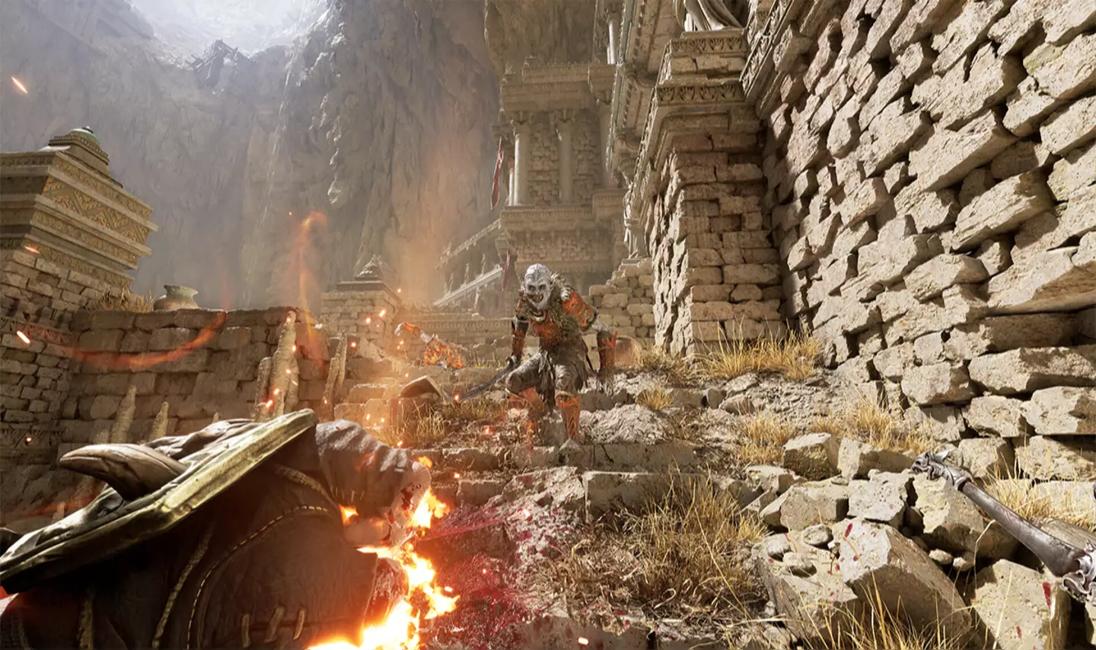Okay, so, 2026 RPGs. Seems like a lifetime away, right? But honestly, the whispers I'm hearing about the upcoming titles, especially those drawing “inspiration” (read: heavily borrowing) from Elder Scrolls 6 gameplay, have me legitimately hyped. Like, clearing-my-schedule-now hyped. There's something brewing, a perfect storm of next-gen tech and lessons learned from past RPG successes (and spectacular failures), that makes me think we're on the cusp of something truly special.
But here's the thing, and it's a big 'but': “inspiration” can be a double-edged sword. On one hand, learning from a behemoth like Elder Scrolls – its open-world design, deep lore, and player freedom – is a smart move. Stealing ideas wholesale? Not so much. The key is to take those core elements and remix them, add your own unique flavor, and create something new. Something, dare I say, breathtaking.
What Makes Elder Scrolls Gameplay So Enduring?
You might be wondering, what exactly is it about Elder Scrolls gameplay that’s worth emulating? Is it just the sheer size of the world? Nah. Plenty of games have huge maps. For me, it's the sense of agency. The feeling that you can literally go anywhere, do anything, and that your choices actually matter. Games like Breath of the Wild capture this same feeling, and it's addicting. It's the feeling that you are actually writing your own story, not just following a pre-determined path.
Think about it: you start Skyrim as a prisoner, about to be executed. Then… dragon! Chaos ensues, and suddenly you’re free to roam. You can become a master thief, a powerful mage, a werewolf, a vampire (though I have issues with the lore here), a dragonborn hero, or just a humble farmer. The possibilities are immense and, crucially, they feel meaningful. And remember that even the small side quests often lead to unexpected adventures and memorable characters? That level of detail is what elevates Elder Scrolls above other open-world RPGs.
The 2026 RPG Landscape: Potential Game-Changers
So, how are these upcoming RPGs aiming to capture that magic? I've been digging around, following the breadcrumbs, and here’s what’s got me excited. Firstly, the tech. We're talking about consoles and PCs with significantly more horsepower, which means bigger worlds, denser environments, and more realistic graphics. But it’s not just about prettier pixels. It's about the potential for more complex AI, more dynamic world events, and more nuanced character interactions. The frustrating thing about a lot of games now are the dumb AI, and this can improve the immersion by a lot.
Secondly, there's a clear trend towards deeper, more reactive narratives. Games are starting to move away from the traditional “good vs. evil” storyline and exploring more morally grey areas. Your choices aren’t just about whether you save the world or destroy it. They’re about who you choose to help, who you choose to betray, and what kind of legacy you want to leave behind. These moral dilemmas add depth and replayability, making each playthrough feel unique.
But wait, there's something even more interesting here... Procedural generation. Now, I know what you’re thinking: “Procedural generation? That sounds boring and repetitive!” And you're right, in the wrong hands, it can be. But when used creatively, procedural generation can create truly unique and surprising experiences. Imagine exploring a world that's constantly evolving, with new locations, quests, and characters appearing dynamically. It’s like having a dungeon master who's always one step ahead of you, crafting new challenges and surprises on the fly. I think games like No Man's Sky (No Man's Sky Official Website) are slowly starting to get this right.
Avoiding the Pitfalls: Where Inspiration Can Go Wrong
Okay, let's be real. Not every game “inspired” by Elder Scrolls is going to be a masterpiece. There are plenty of ways to screw it up. One of the biggest pitfalls is simply copying the surface-level elements without understanding what makes them work. Slapping a big open world on a linear story, for example, just feels disjointed and artificial. Or filling the world with repetitive fetch quests that add nothing to the overall experience. Been there, done that, got the t-shirt.
And then there's the issue of bloat. Too many games try to cram every possible feature into a single package, resulting in a messy, unfocused experience. Sometimes, less is more. Focus on a few core mechanics and polish them to perfection. Take a page from Vampire Survivors' book, sometimes its better to have less features than more.
Actually, that's not quite right... There's something even more insidious than bloat: a lack of genuine innovation. Some developers seem content to simply rehash old ideas, adding a fresh coat of paint but failing to push the genre forward. That's not inspiration; that's stagnation. And nobody wants to play the same game over and over again, no matter how pretty it looks.
FAQ: Your Burning Questions About 2026 RPGs Answered
How will 2026 RPGs differ from current-gen games?
Great question! You can expect a jump in graphical fidelity, for starters. Think more detailed environments, realistic character models, and stunning visual effects. But the real difference will be in the gameplay itself. Expect to see more complex AI, more dynamic world events, and more reactive narratives. The goal is to create worlds that feel truly alive and responsive to your actions.
Why is everyone so focused on open-world design? Isn't it getting stale?
I get your concern! Open-world games can definitely feel repetitive if not done well. However, the potential for freedom and exploration is what draws players in. The challenge for developers is to create open worlds that are actually interesting and engaging, filled with meaningful content and rewarding experiences. When done right, open-world design can be incredibly immersive and satisfying. It feels like the logical next step for RPG gameplay.
I'm worried these games will be too complex for casual players. Is that a valid concern?
It's a valid concern. Accessibility is key. The best RPGs offer a gentle learning curve, gradually introducing new mechanics and systems as you progress. They also provide plenty of options for customization, allowing you to tailor the difficulty to your liking. A good game will challenge you without overwhelming you, and will reward you for experimenting and learning.
What about multiplayer? Will we see more RPGs with strong multiplayer components?
Absolutely! Multiplayer is becoming increasingly popular in RPGs, and I expect that trend to continue. Games like Diablo IV and Baldur's Gate 3 have shown that multiplayer can add a whole new dimension to the RPG experience. Whether it's co-op adventuring with friends or competitive PvP battles, multiplayer can create memorable moments and foster a sense of community. However, it's important to strike a balance between multiplayer and single-player content, ensuring that solo players don't feel left out.
So, there you have it. My somewhat rambling, caffeine-fueled thoughts on the future of RPG gameplay. 2026 might seem like a distant dream, but the groundwork is being laid now. And if the developers can learn from the past, embrace innovation, and avoid the pitfalls, we could be in for a golden age of RPGs. Or, you know, it could all crash and burn. But hey, at least we'll have something to talk about.





















